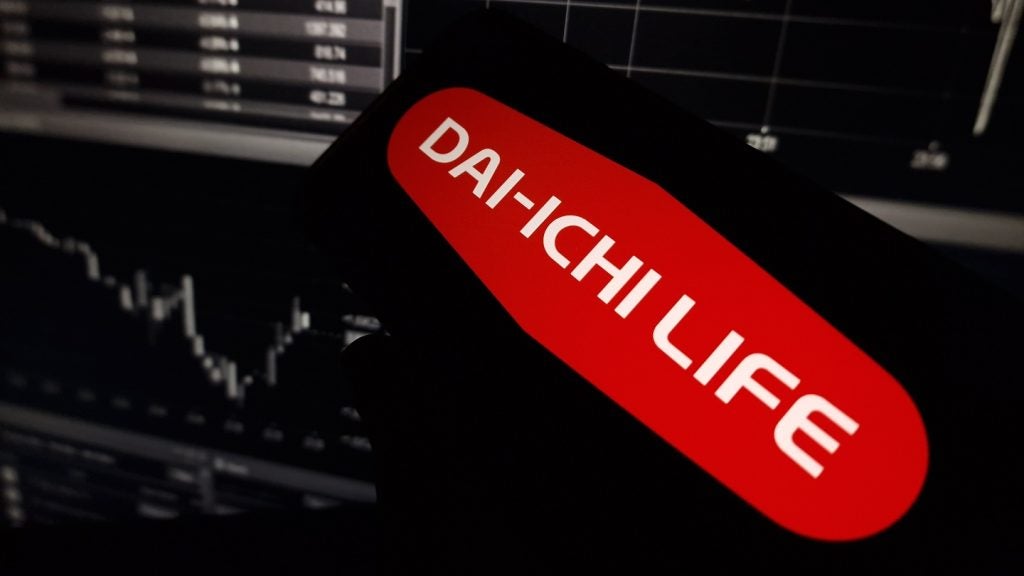Industry Attractiveness
After continuous growth in gross written premium during 2008-2011, the Cypriot insurance industry buckled in 2012 as the economy deteriorated. The crisis in the banking sector and subsequent economic adjustment program from the ‘Troika’ – the International Monetary Fund (IMF), European Central Bank (ECB) and European Commission (EC) – led to a sharp downsize of the banking sector, dealing a serious blow to economic growth. Between 2008-2012 the Cypriot insurance industry registered a CAGR of 2.8%, growing from EUR804.0 million (US$1.18 billion) in 2008 to EUR898.9 million (US$1.16 billion) in 2012.
The Cypriot insurance industry is highly competitive, with 34 insurers operating at the end of 2012. Of these, 26 were domestic companies, two were from the European Union (EU) and six were non-EU companies, all serving a small population of just 873,400 people. The Superintendent of Insurance (SI), appointed by the Ministry of Finance and assisted by the Insurance Companies Control Service (ICCS), supervises and regulates the insurance industry in Cyprus. Insurance companies with a banking background, either as a bank subsidiary or affiliate, accounted for 70% of the gross written premium in the life segment, and 48% in the non-life segment at the end of 2012.
The total share of life insurance, the largest segment in the insurance industry, declined from 42.4% in 2008 to 39.7% in 2012. The fragile state of the economy had a severe impact on demand for life insurance, especially in 2012, and the surrender rate rose from EUR175.3 million (US$243.5 million) in 2011 to 46% EUR256.7 million (US$330 million) in 2012. The segment registered a 7.1% decline in gross written premium, from EUR384.6 million (US$534.2 million) in 2011 to EUR357.3 million (US$459.3 million) in 2012.
Non-life insurance was the second-largest segment in 2012, accounting for 38.2% of the industry’s written premium. Motor insurance was the non-life segment’s largest category in terms of written premium, valuing EUR178.2 million (US$229.1 million) and representing 52.0% of the segment. With a written premium of EUR117.0 million (US$150.5 million) in 2012, property insurance was the second-largest category. A declining housing market and falling car sales due to the economic downturn affected demand for property and motor insurance.
However, the personal accident and health insurance segment continued to grow steadily and registered a CAGR of 8.1% between 2008 and 2012. The inadequacy of public health insurance, and rises in the elderly population and life expectancy drove growth in the personal accident and health segment.
Problems in the country’s banking industry due to high exposure to Greek debt have put pressure on the availability of capital and affected the financial sector, including the insurance industry. This, along with the enactment of Solvency III, is expected to result in further consolidation in the Cypriot insurance industry. The industry saw its first merger in September 2011, as Interlife and Demco Insurance merged to form Prime Insurance Company.
Although the Cypriot insurance industry is smaller than many other markets, EU membership has enabled the country to attract international insurance management and reinsurance operations, backed by its large pool of qualified and experienced professionals. The low penetration rate of 2.0% for life insurance, an increase in the aging population and rising life expectancy will continue to drive growth in the life and personal accident and health segments. Expected reforms in pension and healthcare will increase demand for retirement-related life insurance, while proposed investments in infrastructure and economic stabilization measures will support demand for non-life products. However, the recessionary economic environment and high unemployment will hinder growth.
Segment Outlook
According to Insurance Europe statistics published in January 2013, the Cypriot life segment was one of the smallest in Europe in terms of gross written premium, valuing EUR357.3 million (US$459.3 million) in 2012. The Cypriot insurance industry is dominated by the life segment, which accounted for around 39.7% of the industry’s gross written premium in 2012. The segment’s written premium fell by 7.1% in 2012 due to the crisis in the banking sector, depressed economic conditions and rising unemployment.
The economic deterioration translated into limited liquidity for consumers, leading to high withdrawal rates for life products such as individual life and unit-linked insurance. The surrender rate rose by 46% from EUR175.3 million (US$243.5 million) in 2011 to EUR256.7 million (US$330 million) in 2012. This translated into a rise in the loss ratio from 78.2% in 2011 to 112.9% in 2012. The number of new policies sold fell by 3.1% in 2012 over 2011, as consumers chose not to invest in life products due to economic uncertainty and the crisis in the financial sector.
Competition for deposits during the liquidity shortage in the banking sector negatively affected demand for life insurance investment products. There was also a decline in profitability as the adverse capital markets led to a depreciation of debt securities. The total assets of the life segment declined from EUR1.75 billion (US$2.4 billion) in 2008 to EUR1.68 billion (US$2.2 billion) in 2010. The penetration rate for life insurance also fell, from 2.1% in 2011 to 2.0% in 2012. Similarly, the life segment’s share of the total insurance industry fell from 42.4% in 2008 to 39.7% in 2012.
The Cypriot life insurance segment is highly competitive, with 11 insurers – six domestic, three composite and four foreign – operating at end of 2012. The segment is controlled by companies which are either subsidiaries or affiliates of major banks. The three leading life insurers, Euro Life Ltd, Laiki CypriaLife Ltd and Universal Life Insurance, part of major banks accounted for 69.2% of the segment in 2012.
Problems in the country’s financial sector due to high exposure to Greek debt has put pressure on the availability of capital and impacted economic growth. This and the enactment of Solvency II is expected to result in consolidation in the Cypriot insurance industry. Reforms in the public pension system, including linking the statutory retirement age to life expectancy and introducing an early retirement age penalty, are expected to result in a changing landscape for pension products over the coming years.
Cypriot life insurers are expected to face challenges due to sluggish economic growth and falling disposable incomes due to government austerity measures. However, the country’s aging population, pension deficits due to contractions in government incentives, and economic reforms under the financial assistance program are likely to support long-term demand for life insurance.
Distribution Channels
How well do you really know your competitors?
Access the most comprehensive Company Profiles on the market, powered by GlobalData. Save hours of research. Gain competitive edge.

Thank you!
Your download email will arrive shortly
Not ready to buy yet? Download a free sample
We are confident about the unique quality of our Company Profiles. However, we want you to make the most beneficial decision for your business, so we offer a free sample that you can download by submitting the below form
By GlobalDataCypriot insurers employ various channels to market life products. An insurer can offer products via branch offices, intermediaries or through direct marketing. The leading distribution channels for life insurance in Cyprus are insurance agencies, bancassurance and brokers. These channels together accounted for 84.6% of the life segment’s total written commission in 2012.
Agencies – the largest distribution channel
Like most European countries, authorized agencies play an important role in the distribution of life products in Cyprus. Agencies generated an average 45.5% of the total new business written premium between 2008 and 2012. The primary reason for the strong preference for agencies in Cyprus is their geographical reach and wide network, making them an efficient and affordable distribution channel. The channel offers insurers a large client base, a strong brand reputation and a ready-made sales force.
Bancassurance a leading channel of distribution
Bancassurance is the second-largest distribution channel for Cypriot life insurers. The banking system’s developed network makes it a key channel for life product distribution. Most insurers are subsidiaries of banks, making it easier for them to cross-sell insurance. Insures also favor bancassurance as it helps to reduce distribution costs and provides access to large customer base. However, the bancassurance channel was affected by the crisis in the financial sector in 2012, and its share in total new business generation is expected to fall from 23.8% in 2012 to 21.0% in 2017.
Brokers remained an important channel
Insurance brokers play an important role in the expansion of the Cypriot life insurance segment, and generated 14.9% of the total new business written premium in 2012. There were 29 professional brokers in Cyprus in 2012, up from 21 in 2008. With their first-hand knowledge of customer requirements, brokers occupy a key role in the distribution of life insurance.
The number of policies sold through bancassurance fell from 5,000 in 2008 to 3,700 in 2012 due to dampened consumer sentiment during the recessionary economic environment. However, the use of new online technology will enhance communications and enable brokers to provide a better assessment of individual risk to determine the most appropriate products for different types of client.
Porter’s Five Forces Analysis
Bargaining power of suppliers: Medium to High
Life insurers in Cyprus have plenty of options to raise funds due to the presence of several banks and financial institutions in the country. There were 41 banks operating in Cyprus at the end of 2012, of which 14 were incorporated domestically and the remaining 27 were foreign-owned. The life segment is dominated by large domestic and foreign insurers with strong capital bases, reducing their dependency on capital providers. However, with the crisis in the financial sector in 2012 and the implementation of Solvency II, demand for capital is expected to increase, giving banks and financial institutions a higher negotiating power, especially over smaller insurers.
Bargaining power of buyers: Medium
The life segment was severely impacted by the country’s economic issues, especially during 2012 when there was a sharp decline in demand for individual and unit-linked policies. The fall in economic activity drove the unemployment rate up to 11.9% in 2012, the second-highest in the EU after Greece. This had an impact on consumer purchasing power for long-term investments such as life insurance. Insurers are increasingly customizing products with customer requirements in mind, resulting in an increase in buyer bargaining power.
Barriers to entry: Medium
The minimum capital requirement for Cypriot life insurers stood at EUR1.02 million (US$1.3 million). Following the country’s accession to the EU and the upcoming introduction of Solvency II, capital requirements are expected to increase. A total of 11 life insurers operate in the segment, with the top three accounting for a large proportion of the gross written premium. An established network of insurers and brand loyalty to domestic companies makes it difficult for new entrants to gain significant market share.
Intensity of rivalry: High
The life segment consists of both large and small insurers, creating a highly competitive environment. The segment is highly concentrated, with the 10 leading life insurers accounting for 99.4% of the segment’s gross written premium in 2012. Low levels of differentiation between products and services also make it difficult for new entrants to gain a foothold in the market. In addition, falling demand for life products due to deteriorating economic conditions is fueling competition.
Threat of substitutions: Low to Medium
There is no direct substitute for life insurance in Cyprus, and individual life and unit-linked policies dominate the segment. However, the global financial crisis and the debt crisis in Europe led to a decline in consumer confidence, driving customers to invest in low-risk securities such as government bonds.







